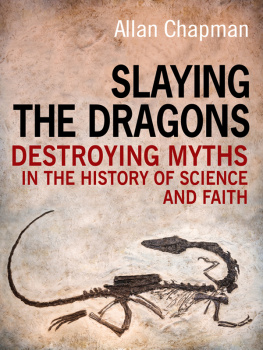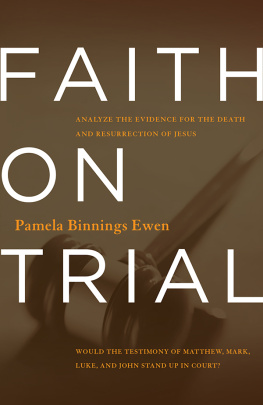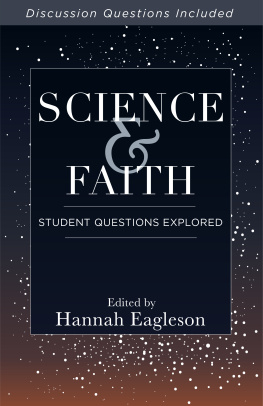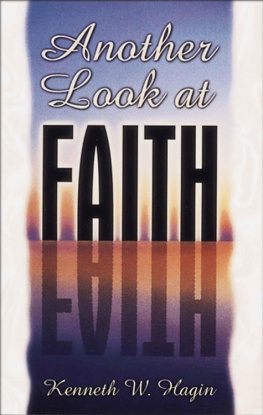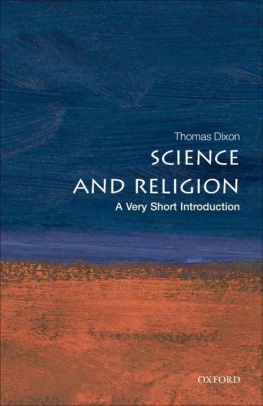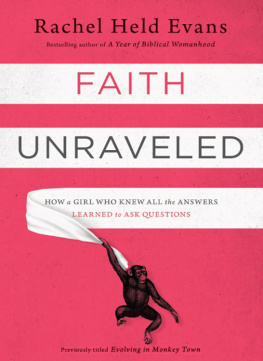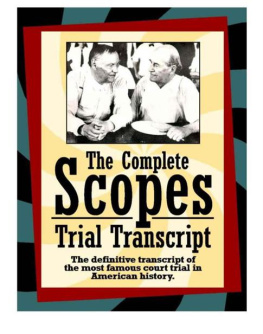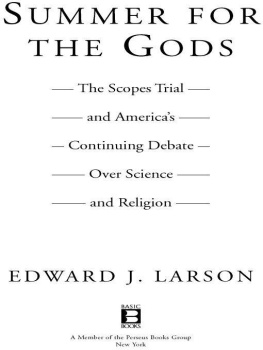Slaying the Dragons
The dragons of the title are the myths, half-truths, and downright untruths that have become fixed in secular thinking and have thus distorted strongly the sciencereligion debate. The author attacks these dragons with the passion of a latter-day St George and, in a book that is forthright, clear, readable, convincing and sometimes humorous, he sets the record straight. I recommend this book to anyone interested in the relationship between science and religion.
John Bryant, Professor Emeritus of Biological Sciences at the University of Exeter
An informed examination of the claim that there is a war between science and religion. Historian of science Allan Chapman shows how this claim is mostly founded on myths and legends. A very enjoyable and instructive read.
Keith Ward, Fellow of the British Academy and Professional Research
Fellow at Heythrop College, London.
In magisterial style, and from an encyclopaedic knowledge of his subject matter, Allan Chapman systematically exposes the multiple myths and flagrant falsehoods propagated by the so-called New Atheists. Chapman convincingly demonstrates how, far from displaying conflict between science and religion, the historical record is shot through with a profound harmony between these two paths to truth, and how Western Christendom provided the fertile soil in which modern science as we know it took root.
The Revd Dr Rodney D. Holder, Course Director, The Faraday Institute,
St Edmunds College, Cambridge
This is a fascinating, timely, and highly accessible study of a vital subject. In a world where the great majority of people are believers no-one can doubt the importance of the subject. And after reading this book, no-one can doubt that the supposed clash of science and religion has been greatly distorted. Slaying the Dragons will enable intelligent people to enter the debate afresh with renewed interest and open minds.
John Pritchard, Bishop of Oxford
A brilliantly concise history of the relationship between religion and science, and a passionate defence of Christianity. In Slaying the Dragons, Allan Chapman offers a robust and highly readable response to the not-so-New Atheism.
Edmund Newell, Principal of Cumberland Lodge and former Chancellor of St Pauls Cathedral
Slaying the Dragons
Destroying Myths in the History of Science and Faith
Allan Chapman

Text copyright 2013 Allan Chapman
This edition copyright 2013 Lion Hudson
The right of Allan Chapman to be identified as the author of this work has been asserted by him in accordance with the Copyright, Designs and Patents Act 1988.
All rights reserved. No part of this publication may be reproduced or transmitted in any form or by any means, electronic or mechanical, including photocopy, recording, or any information storage and retrieval system, without permission in writing from the publisher.
Published by Lion Books
an imprint of
Lion Hudson plc
Wilkinson House, Jordan Hill Road,
Oxford OX2 8DR, England
www.lionhudson.com/lion
ISBN 978 0 7459 5583 4
e-ISBN 978 0 7459 5723 4
First edition 2013
Acknowledgments
Scripture quotations taken from the Authorized Version
A catalogue record for this book is available from the British Library
Cover image: Marcio Silva/iStock
For Rachel
Wife, Scholar, and
Best Friend
Acknowledgments
This book has grown out of many years of lecturing, to audiences of all kinds, on the historical relationship of science with Christianity, and the many questions and comments thrown at me in discussion, including Is there anything I can read on this? To all those who have listened, questioned, and commented, my thanks are due. I am also deeply indebted to Paul Clifford and Alison Hull of Lion Hudson for their invaluable guidance and perceptive comments, which have led me to make a great many additions and improvements to my original manuscript, resulting, I hope, in a much better book. But my biggest debt of all is to my wife Rachel, who has been ready with her typing and editorial skills, advice, criticism, and scholarship at every stage of the process, and whose patience has been truly monumental. It is to her that this book is dedicated.
Contents
Myths, Monotheism, and the Origins of Western Science
For much of the twentieth century, and especially since the 1960s, the Judeo-Christian faith, and Christianity in particular, have been under increasing assault. This assault has come from several directions: from particular interpretations of scientific progress; from certain styles of radical politics, often based on social science presuppositions; from fashionable philosophers and social pundits; and, by the late 1990s, from the media. And one of the great ironies is that while Great Britain has an established church, the Christian faith has become a thing of ridicule and mockery in many circles. National Health Service Trusts have suspended nurses who would not remove crucifixes hanging around their necks, and bed-and-breakfast hotel proprietors and experienced foster parents are threatened with prosecution because they will not countenance certain practices condemned in parts of the Scriptures or permit them to be performed on their private premises (yet a blind eye is not infrequently turned to the customs and practices of non-Christian religions). Indeed, several law-abiding Christians have mentioned to me that if they should utter the word Jesus or Christ in any context other than that of a joke or a blasphemous expletive, they feel that they would be exposing themselves to accusations of being fundamentalist, narrow-minded, out-of-date, or stupid.
For do not the fashionable New Atheists Richard Dawkins, Sam Harris, Daniel Dennett, the late Christopher Hitchens, et al. (so styled by present-day journalists to differentiate them from the Old Guard of atheists, such as Bertrand Russell and Aldous Huxley) constantly remind us that Christianity is a thing of the Dark Ages; that science and reason have swept its superstitions away, and that sociology, psychology, neurology, and most of all evolution, have delivered us from such bondage? And as our secular political leaders and promoters of multiculturalism constantly tell us, do we not now live in a free, open, equal, rational, and transparent global village society? A society so tolerant that every creed and belief must be respected and lovingly nourished as an expression of our natural goodness unless, of course, that creed comes from the Holy Bible!
This monumental double-think a double-think of Orwellian proportions constitutes one of the biggest myths of the age in which we live: a myth that derives its style of thinking from perversions of scientific thinking, in which the absolutism of Newtonian mechanics is combined with the dogmatic determinism of neo-Marxism, and the directionless moral vacuity of postmodernism.
Indeed, these myths, which form so much of the social geography of the late twentieth and early twenty-first centuries, have become so pervasive across much of Western society that many people regard them as natural and unquestioned aspects of modern thought. I remember in my youth, in the late 1960s, being peddled stories of how the free modern world only came into being when brave souls such as Copernicus, Galileo, and the philosophers of the Enlightenment had the courage to stand up to the church and often paid dire penalties. Of how poor Charles Darwin had been vilified for daring to present the scientific fact that we all came from monkeys. But as a natural sceptic as far as intellectual fashions go, who has always had a fascination with the nature of myth-making, I became increasingly inclined to treat these socio-myths with caution. As I shall show more fully in Chapter 11, I have always felt that anti-religious scepticism, as a universally lauded instrument of analysis, must itself be regarded sceptically.

